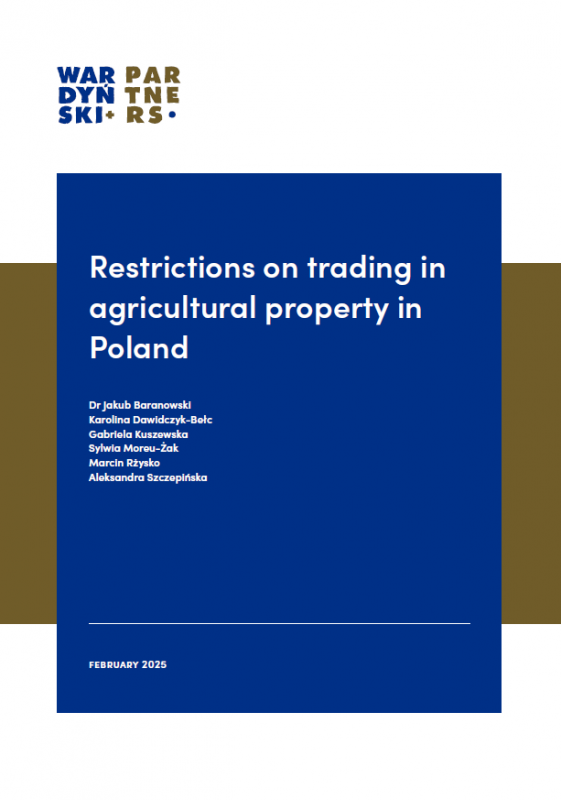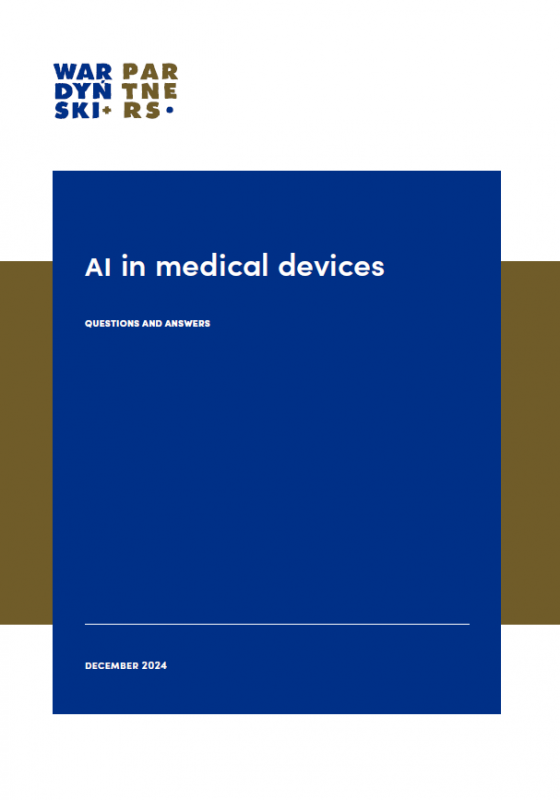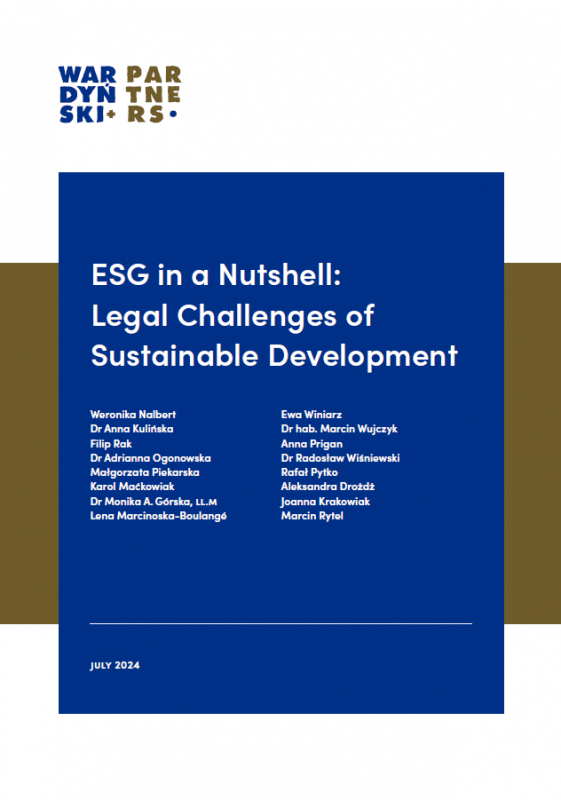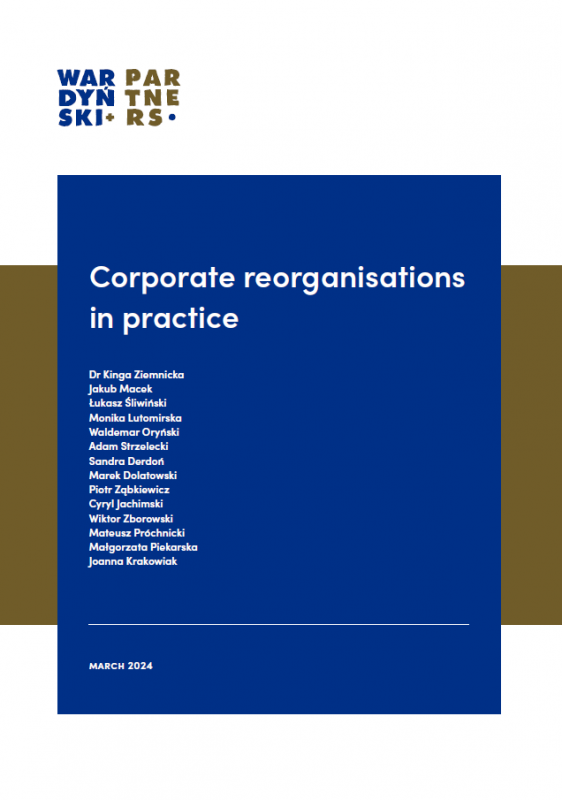Third-party use of a trademark in a prize draw: Permissible use or infringement?
WIBOR litigation, part 1: Can the WIBOR benchmark be challenged as the basis for setting variable interest rates?
WIBOR litigation, part 2: Can basing variable interest rates on WIBOR be deemed an abusive clause?
Court of Justice: The sanction of free credit must be proportionate
Interest on capitalised costs of credit, and the sanction of free credit
Control of foreign investments—upcoming changes
What does olive oil have to do with wine? When a trademark containing a geographical indication can be registered
Environmental criminal law—current status and prospects
Judges in their own case?
Guide to the Foreign Subsidies Regulation, part 4: Fines and other penalties
Proposed deregulation of pharmaceutical law
Guide to the Foreign Subsidies Regulation, part 3: Notification in public procurement
Reports
More

Guide to the Foreign Subsidies Regulation
In this guide we explain what the FSR is, who is affected by it, what new obligations it introduces, and when it is necessary to notify financial support received from outside the EU. We have compiled practical examples and tips on how to prepare for the new requirements.

Restrictions on trading in agricultural property in Poland
What constitutes agricultural real estate? Who can seek to acquire such property, and how should they apply? What duties does a buyer of agricultural property have? How does a company’s possession of agricultural property affect the ability to trade in the company’s shares? What are the sanctions for violating the Agricultural System Act?

AI in medical devices
How to approach the regulatory “octopus” entangling any new medtech product? Instead of just citing the regulations, we decided to share a hypothetical case study. We answer more than 30 questions from four key areas, but surely this does not exhaust the potential legal issues in this area.

ESG in a nutshell
ESG and sustainability are a new field for many entities. To help businesses navigate through the maze of regulations, we have identified the main issues from different areas of law where ESG and sustainability risks may arise. We also suggest ways to help mitigate these risks.

Corporate reorganisations in practice
Our team has recently conducted a range of corporate reorganisations, including mergers (some cross-border), conversions and demergers (including demerger by spin-off). This experience has encouraged us to gather our knowhow in one place and discuss issues that are useful in practice. In our report, we explore many issues worth examining at the stage of preparing companies for reorganisation.

Pharmaceutical Package
How will the new regulations affect innovation and access to affordable medicines? Will they reduce the environmental impact of pharmaceutical production? In our report we discuss selected key changes which the package would make to EU pharmaceutical law. We focus on three of the aims of the legislation: supporting drug innovation, increasing access to drugs, and addressing environmental concerns.

Corporate Criminal Liability in Poland
On 2 September 2022, the Polish Ministry of Justice published a draft of far-reaching changes to the liability of collective entities, which would eliminate the requirement to obtain a predicate ruling for all criminal and fiscal offences for which collective entities could be held criminally liable. If these changes enter into force, they will still have momentous consequences for the operation and legal standing of companies in Poland.

Freezing of accounts by law enforcement authorities
It’s hard to explain to someone who has never been accused of a crime that they cannot use their own money, and this situation could last for months. Nonetheless, an institution exerting this effect functions under Polish law and can impact both individuals and companies

